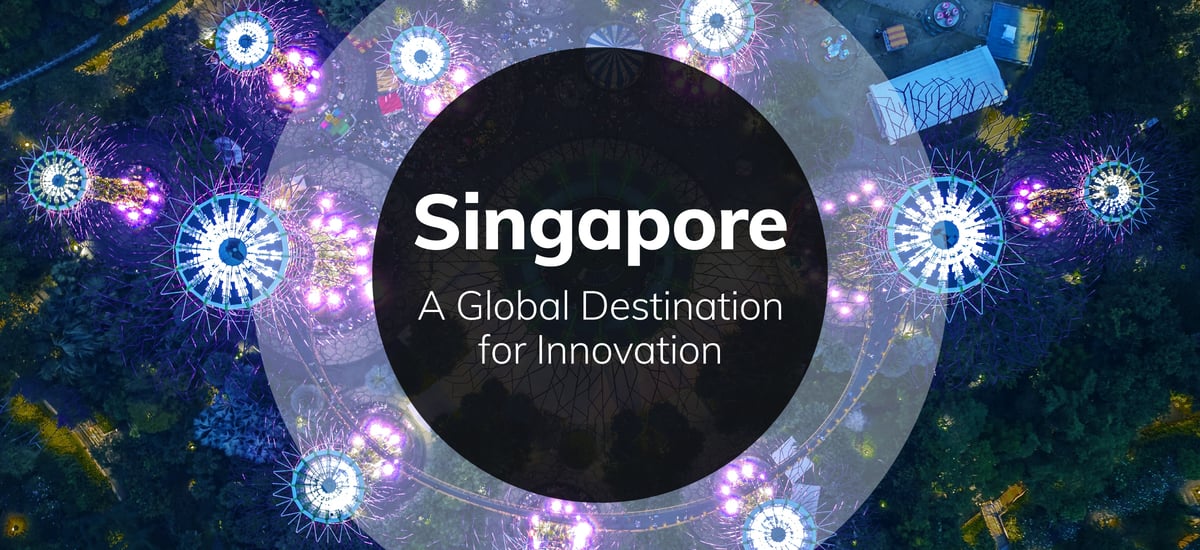
Singapore: A Global Destination for Innovation
Crops autonomously pollinated by nano-drones instead of bees – a novel solution to reversing the rapid decline in natural pollinators, upon which 35% of the world’s crops depend[1].
Smart, lightweight eye-tracking glasses that enable first responders to control their equipment with just their eyes – freeing their hands to deliver life-saving emergency care.
Digital twins that predict and manage disease in real-world patients, predicting how a person ages, when illnesses could appear and what the most effective treatments are, for personalized care and better outcomes. What might sound like scenarios from the future are just a few examples of how some of the world’s most forward-looking startups are tackling the biggest global challenges, from fragile food security to rapidly aging populations.
And these game changers – Polybee, Moon Technologies, and Mesh Bio – have more than innovation in common. They’re among the 4,000 tech startups that have chosen Singapore as a springboard to develop and launch transformative technologies, and kickstarted their entrepreneurial journeys in a city-state that topped the 2023 Global Innovation Index rankings in Asia-Pacific[2].
Enabling Entrepreneurs
Founders are at the forefront of any innovation ecosystem, and Singapore’s are no exception.
Whether through networks with global innovation hubs, open innovation challenges or programs like Startup SG Founder and Startup SG Accelerator, which link first-time founders and new entrants with research institutes, venture capital and corporates, Singapore’s wide-ranging, sector-specific support equips founders with the networks and resources to navigate the complexities of building a successful startup at every stage.
These are just some of the ecosystem-building initiatives by government agency Enterprise Singapore, the government agency driving Singapore’s development as a startup hub. Meanwhile, its dedicated EntrePass welcomes serial entrepreneurs and experienced innovators to Singapore.
For French national and EntrePass holder Oussama Harouch, Singapore was a natural choice to launch Drip.ai, a sustainability-focused startup whose hydropanel technology will enable farmers, factories and public utility companies to extract water from the air without emitting any carbon – at scale.
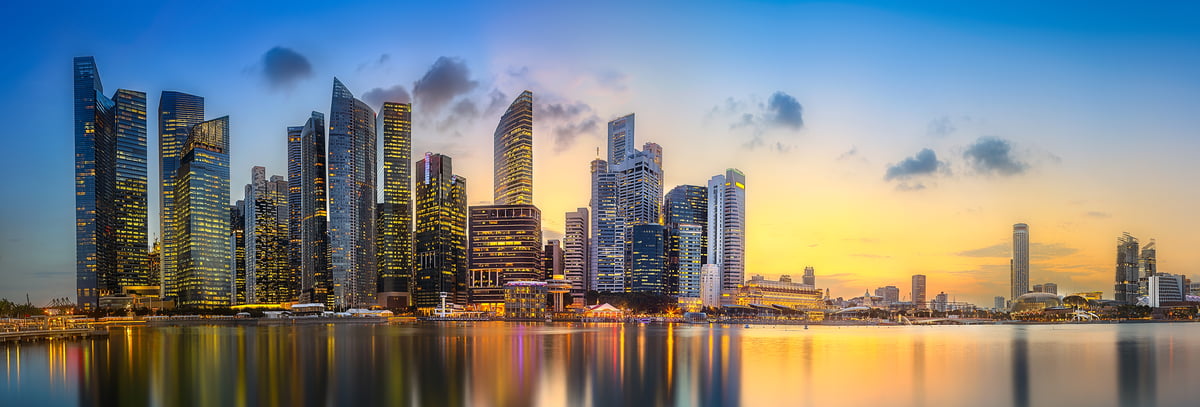
“After building my first startup in North America, I really wanted my second to have a strong foothold in Asia while still being well connected to the western part of the world,” says Harouch.
“After having a few conversations with a VC, it became clear that Singapore was the ideal launchpad, with its rapidly growing startup ecosystem, including a stellar community of other founders. There’s also incredible support for innovation from the government, which brings public and private sector players into a proactive network that’s uniquely conducive in creating and commercializing new ideas. All this comes with Singapore's superbly well-run system. Though not often in the spotlight, the country’s minimal bureaucracy greatly simplifies the entrepreneurial journey, allowing us to focus on building and innovating without unnecessary hurdles.”
Among the like-minded entrepreneurs seizing the Singapore opportunity is James Hare, whose healthtech company is automating the fight against heart disease, the leading cause of death globally[3]. Us2.ai, the 2019 winner of SLINGSHOT, Enterprise Singapore’s international startup pitching competition, is the first spinout of an 11-country cardiovascular research platform supported by Singapore’s Agency for Science, Technology and Research (A*STAR), and the first FDA-cleared AI software capable of fully automating heart ultrasound reports.
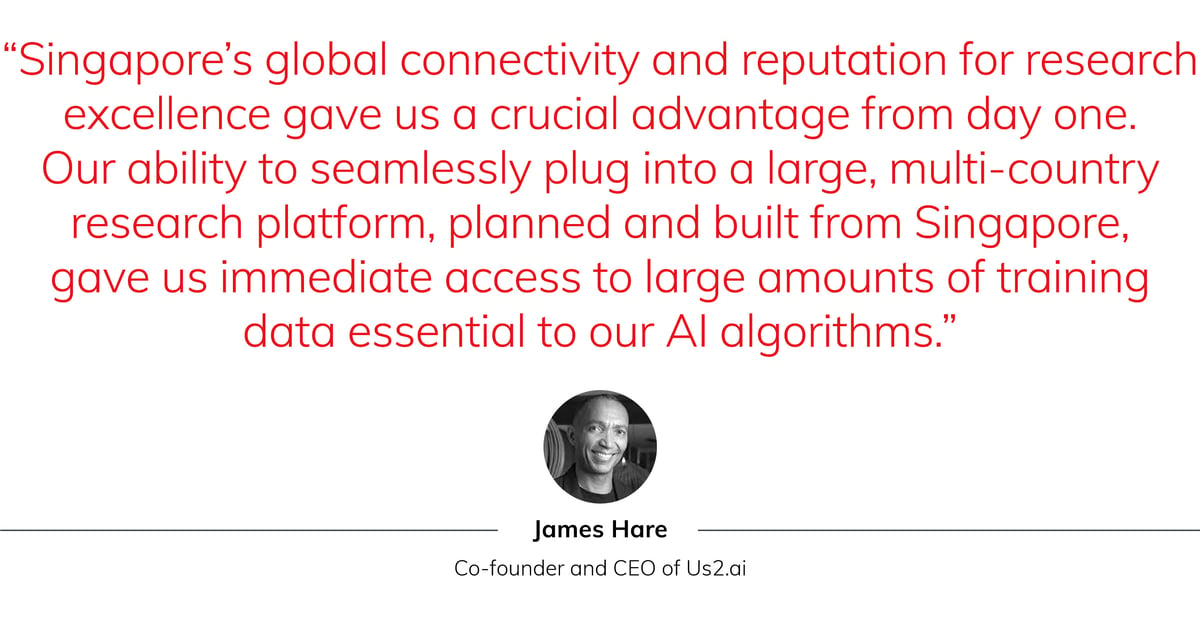
“Being able to survey and study a wide variety of races, ethnicities and phenotypes from one single location allowed us to move significantly faster than our competitors, creating a robust solution that works with extremely high accuracy worldwide. And in a field where access to talent is the difference between success and failure, A*STAR enabled us to quickly recruit a talented team from three world-class research institutes, dramatically accelerating our time to market.”
Catalyzing Capital
While industry support for entrepreneurs is crucial, funding is also key. “Access to the top VCs in the world, including some of Silicon Valley’s heavyweights, is another key factor that makes Singapore one of the best places to be a founder. Seeing the number of startups that were successful in raising large financing rounds and building successful products was a contributing factor that gave us the confidence to launch Drip.ai here,” notes Harouch.
And investors are certainly choosing Singapore. In 2022, Singapore topped the region as the leading destination for venture capital investments, attracting more than half the total deal volume and deal value recorded across the six largest ASEAN economies.
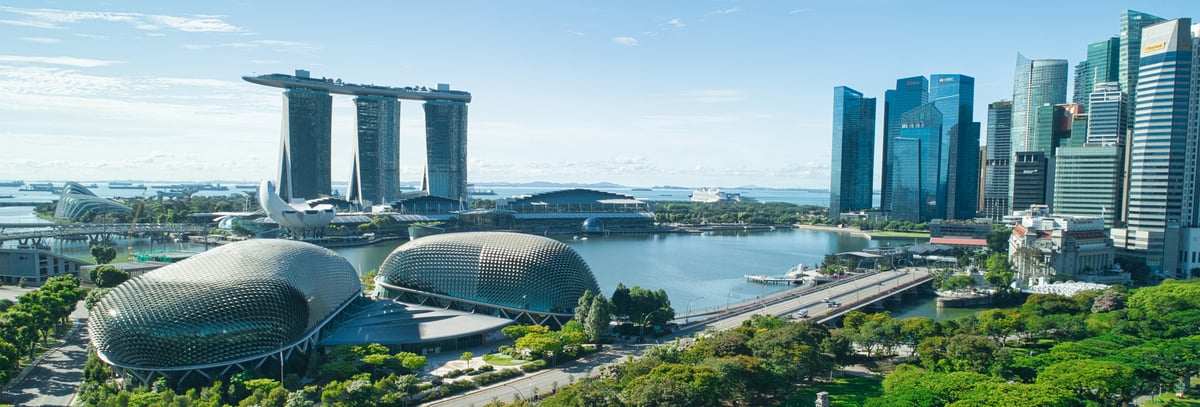
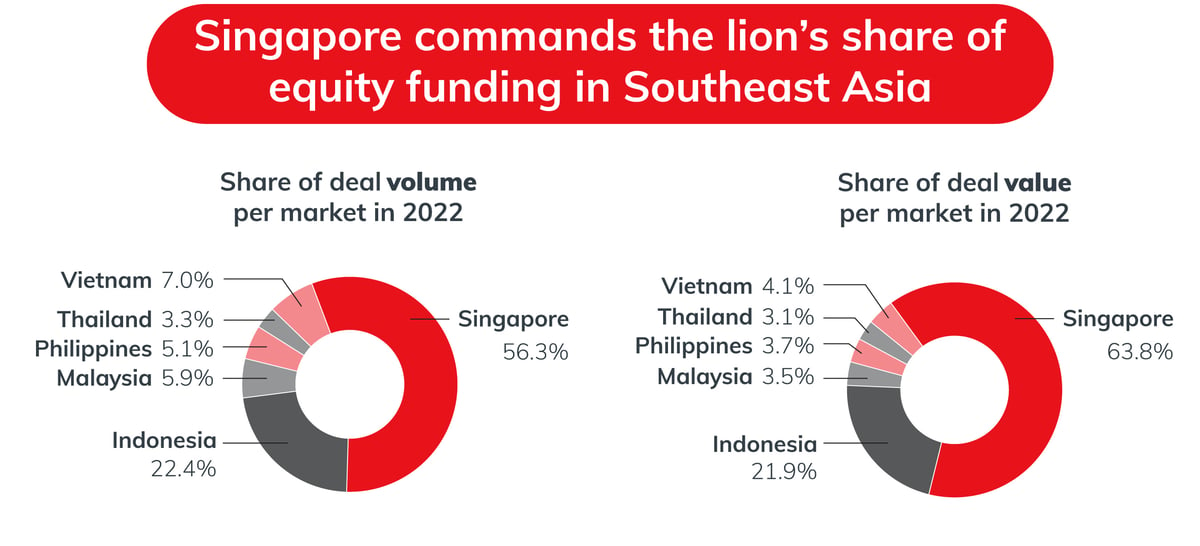
For investors like Coronet Ventures, the corporate venture capital arm of Cedars-Sinai Intellectual Property Company (CSIP), focusing squarely on Singapore for its first investment entity outside the United States was an easy decision. With its longstanding leadership in biomedical research and development, Singapore is accelerating cross-border innovation in precision medicine, digital healthcare and diagnostics solutions, and creating new opportunities for CSIP to realize its long-term mission of delivering quality healthcare for a rapidly aging world, where the number of people aged over 60 will double to 2.1 billion by 2050[4].
“Singapore is at the perfect intersection of breakthrough innovation, world-class research and talent development. In addition, Singapore already has a strong enabling layer established in the ecosystem. For example, working with partners like A*STAR, which bridges the gap between academia and industry, greatly expands the funnel for what we are able to access and reduces the time to connect with companies with innovative solutions in our areas of interest,” says Nirdesh Gupta, managing director of Cedars-Sinai Technology Ventures.
A Gateway to Asia
Singapore’s position as a global gateway for innovation offers a unique advantage: not as an end market, but a regional anchor and accelerator for ambitious startups to access and scale new opportunities in Asia – and particularly Southeast Asia, projected to be the next bright spot for innovation and economic growth.

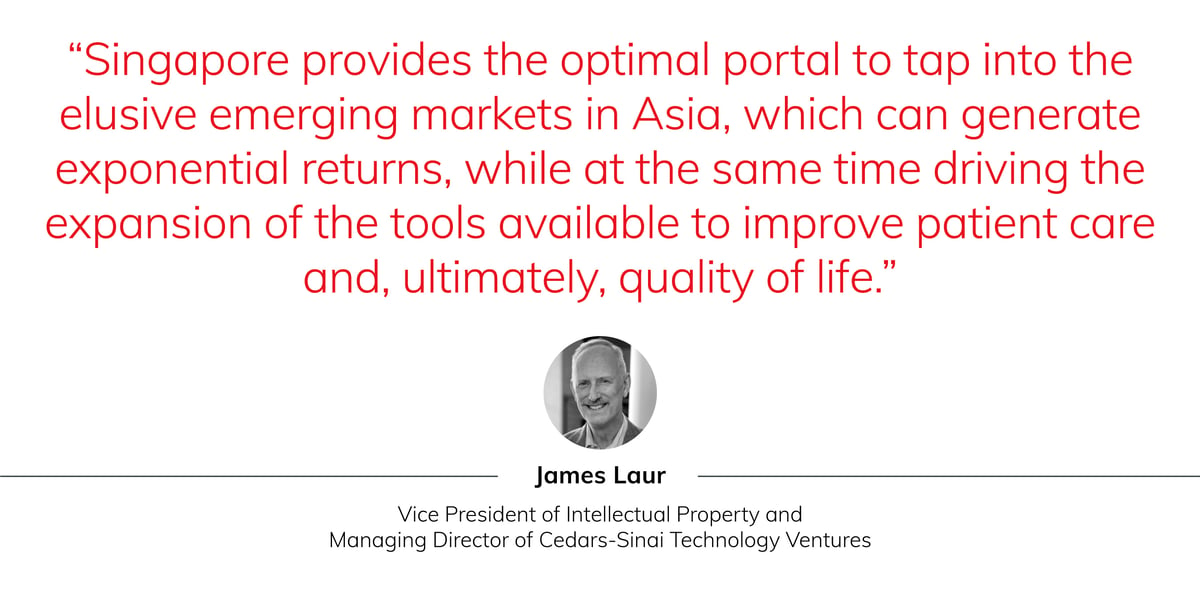
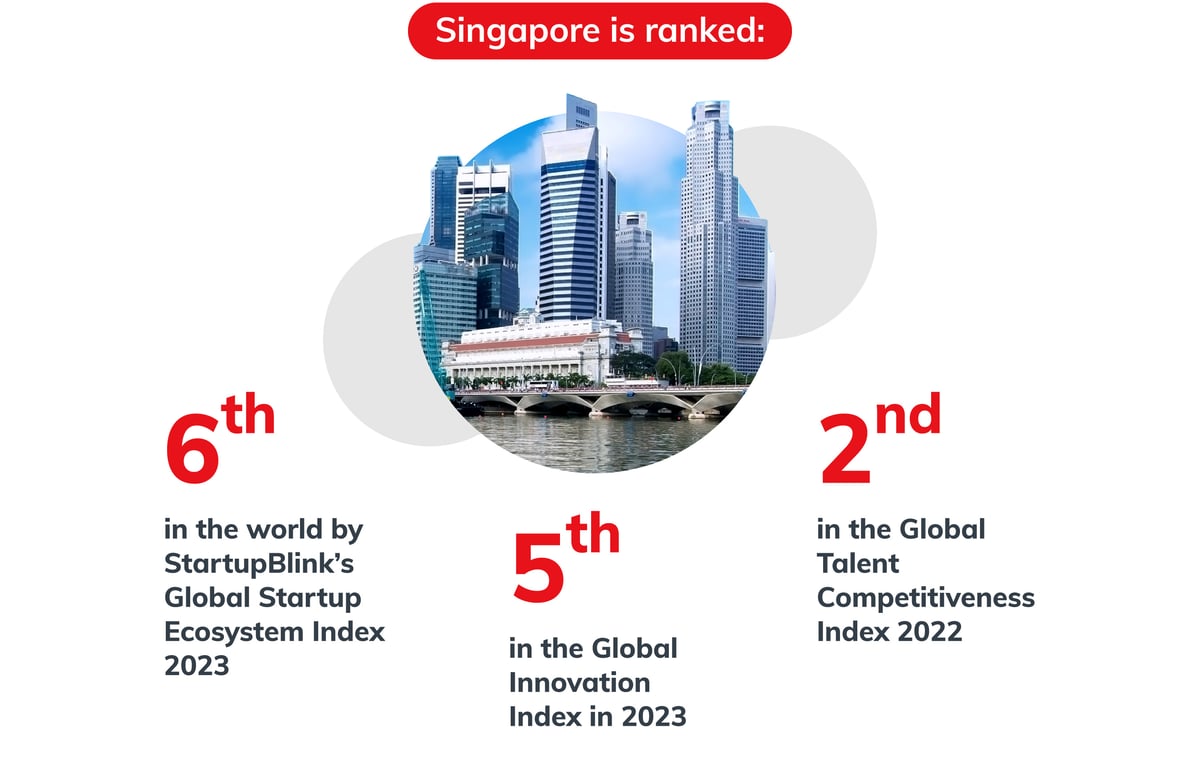
In addition, the availability of a co-investing partnership with SEEDS Capital, the investment arm of Enterprise Singapore, which has invested S$880 million in 130 early-stage startups over the last five years, was a strong draw for CSIP.
“The SEEDS Capital partnership enhances our confidence in the ecosystem because we have a government agency that is willing to put their money where their mouth is, with the sole intention of advancing the ecosystem,” adds Laur. “Furthermore, Singapore has built a reputation for its solid, dependable legal framework that underlies a vibrant commercial environment, which gives us a high level of confidence in pursuing investments into startup companies based in Singapore.”
This is a view shared by Aditya Mathur, founder and managing director of Elev8.vc, a B2B-focused VC fund with keen interests in deep tech startups. Having worked around the world, from Shanghai to Silicon Valley, Mathur regards Singapore as an ideal sandbox to launch a deep tech company.
“Two incentives that stand out for Elev8.vc include the Startup SG Equity scheme, and the partnership with SEEDS Capital. Startup SG Equity is a capital matching scheme for qualified partners like elev8.vc that helps de-risk our deep-tech investments. Meanwhile, SEEDS Capital’s team truly partners with our portfolio as extensions of their teams. Through Enterprise Singapore's overseas networks, they facilitate international expansion by organizing meetings with government agencies, introductions to enterprise customers and trade show participation. Their support for talent attraction and technology collaboration with universities is invaluable,” says Mathur.
Abundant Opportunities
For natural resource-scarce Singapore, a strong culture of ecosystem-wide collaboration – and an early recognition that the nation cannot go the distance alone – has driven its appetite for building these synergies.
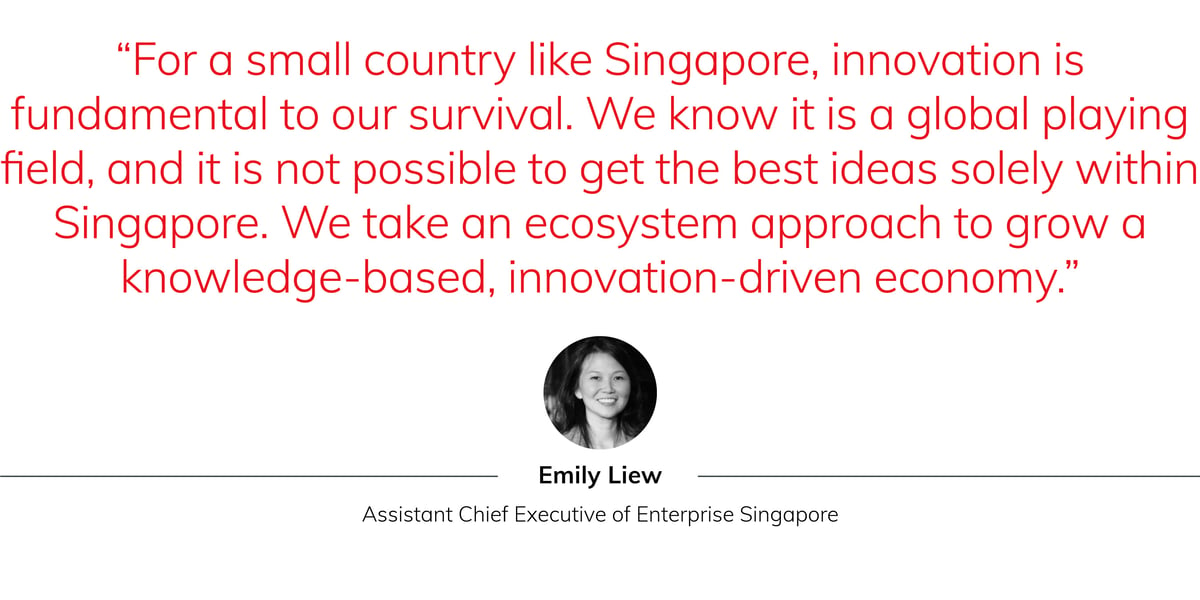
“We were a nascent ecosystem just 10 years ago, but now, you can find more than 4,000 tech startups, 400 VC firms and 220 accelerators and incubators from all over the world in one little red dot. When everyone is brought together and invested in realizing a shared vision, we can make anything happen.”
Singapore’s growing space tech industry is a prime example. While it might not seem intuitive for Singapore to specialize in breakthroughs in space, the country’s 50 space tech startups have already developed solutions that reduce the environmental impact of space travel, patented new space-resilient materials, and even deployed satellites to drive wireless laser communications and enhance connectivity. Among the 50 companies in this sector is Elev8.vc-backed Equatorial Space System (ESS), whose patented hybrid propulsion system will soon enable safe and affordable journeys into space. Today, ESS stands as Southeast Asia's pioneer to launch a commercial and non-solid rocket, on track for its first orbital launch in 2024.
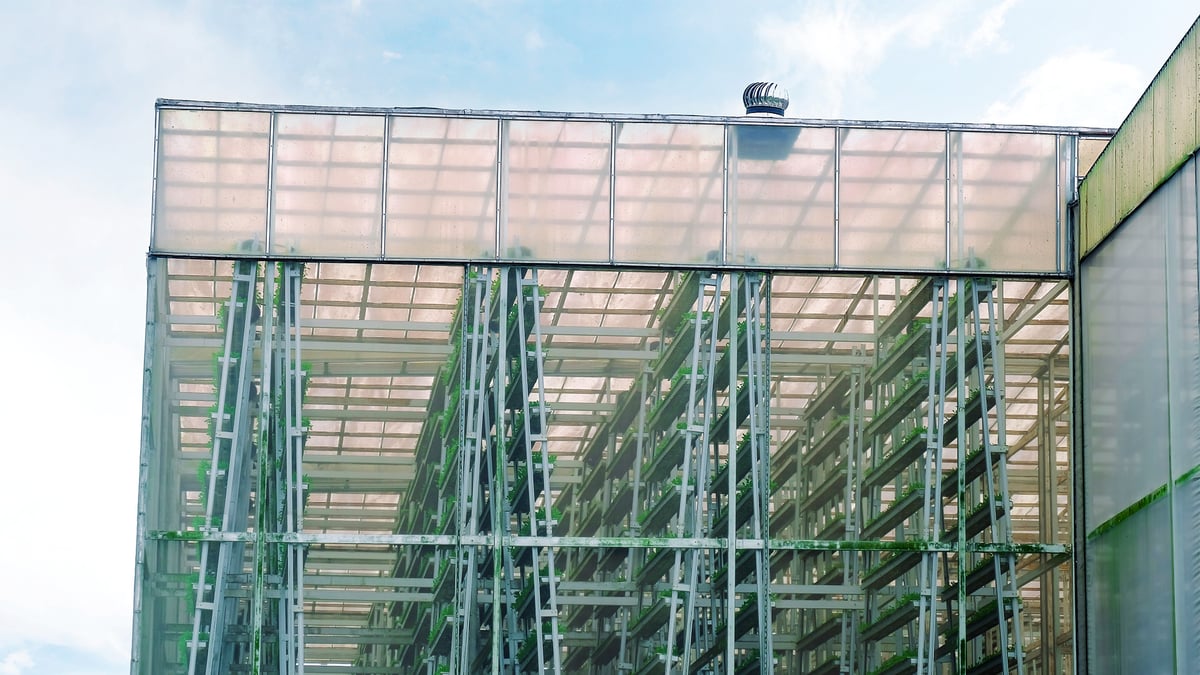
Similarly, agriculture is not a sector that many would associate with land-scarce Singapore. Yet the city-state has built a strong base of homegrown agritech startups, spanning vertical farming, hydroponics and aeroponics, turning historical constraints into fresh opportunities.
As Singapore becomes synonymous with tech and innovation, Liew has renewed optimism for Singapore’s role as a global hub. “We are agile in responding to change, resourceful in amassing the support we need, and determined to make things happen. We want Singapore to be top of mind for the most brilliant minds and entrepreneurial founders to bring their innovations and companies here,” she shares.
For Hare, this sentiment is an easy one to echo. “Robust high tech ecosystems do not appear by accident. They require many years of patient investment, smart risk management, resourceful talent, and public-private commitment. There is just an elite handful of locations globally that are committed to building a platform where deep tech can feel welcome and have access to world-class resources, talent, financing, safety and continuity. Singapore is one of these. It’s a country that welcomes innovation, providing a supportive, no-nonsense environment for startups like ours aiming to change the world.”
